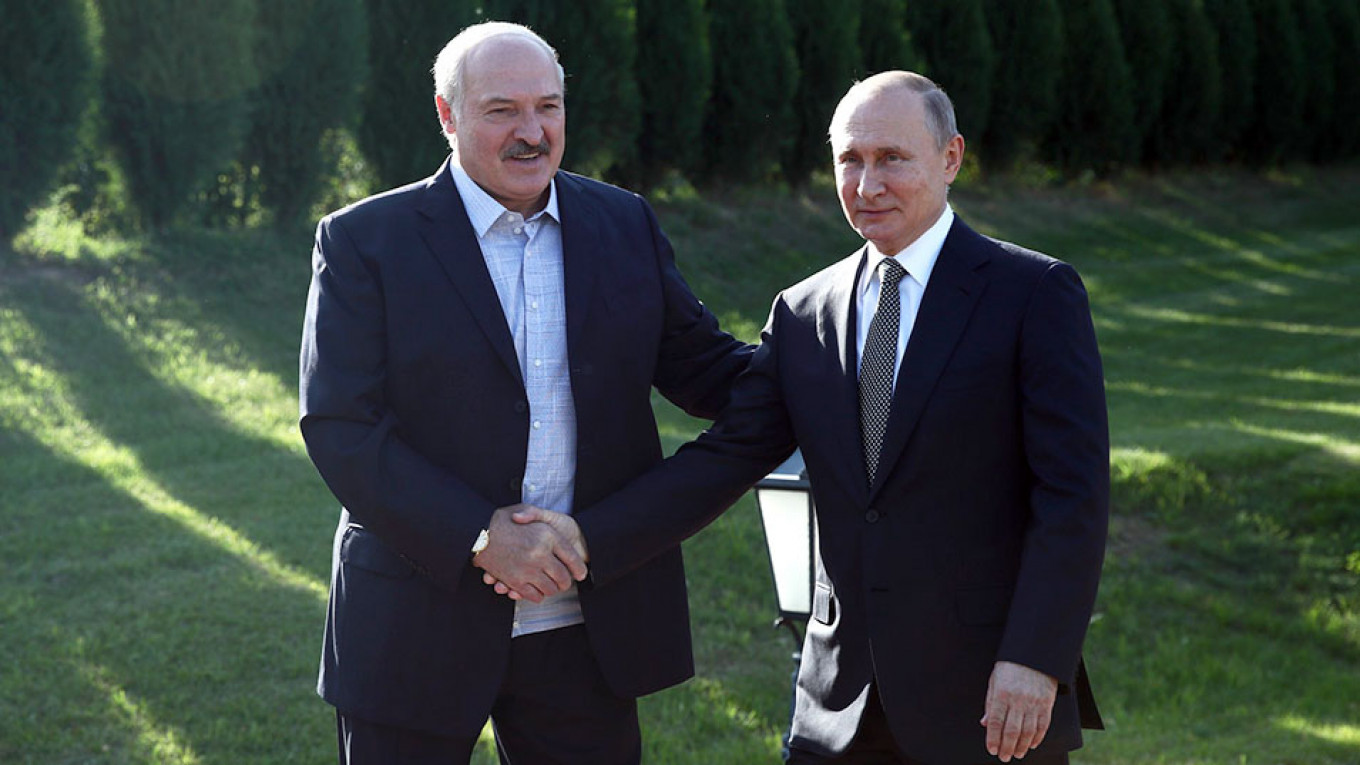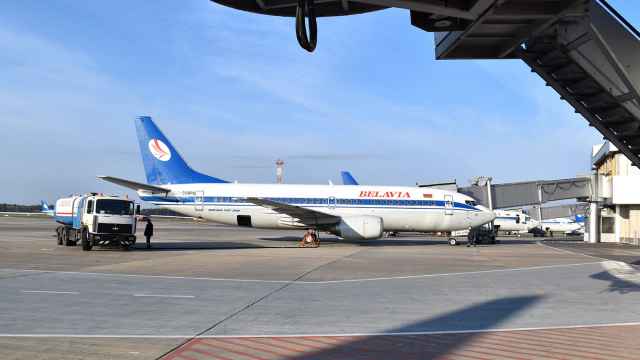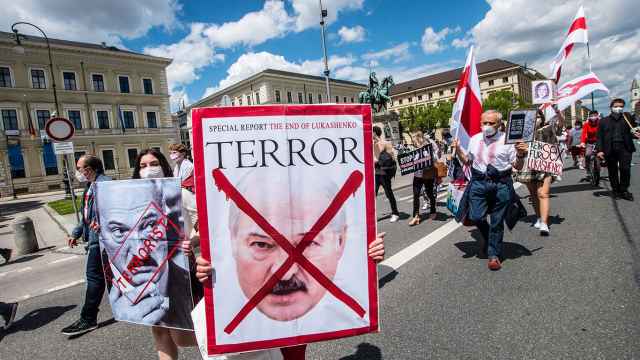Russian-language media was abuzz after Belarus’ top diplomat in Moscow said the countries are working toward creating a single parliament and cabinet of ministers.
Talks to deepen Russian-Belarussian integration have taken on greater significance amid discussions that President Vladimir Putin could extend his rule past his current term limit by taking on the leadership of a newly formed union. The integration process has fueled concerns in Minsk of a possible quiet annexation by Moscow.
“We’re currently working on creating a single parliament and government,” Belarussian Ambassador to Russia Vladimir Semashko told the country’s independent news website tut.by Friday.
Under the new structure, Moscow and Minsk’s sovereign lawmakers and ministers will “surrender certain binding governing functions higher up,” Semashko said without elaborating.
“The presidents have agreed that the stated goals are ambitious and they shouldn’t change,” he said. Putin met Belarussian President Alexander Lukashenko last week on the sidelines of an ex-Soviet alliance summit in Kyrgyzstan.
The Belarussian Embassy in Moscow distanced itself from Semashko’s comments, telling local media that his words were taken out of context.
“The ambassador references the [Russia-Belarus] Union State Treaty, where all that he said is identified directly,” the embassy said Friday.
Putin and Lukashenko are expected to sign a 31-item integration roadmap sometime in December. It reportedly envisions the formation of a Russian-Belarussian economic confederacy by 2022 with a single tax code and civil code, as well as a unified oil, gas and electricity market.
Semashko told tut.by that the sides face a Dec. 7 deadline to find compromise on 11 out of 31 agenda items.
The Kremlin has said the integration roadmap will be released to the public before the start of 2020.
A Message from The Moscow Times:
Dear readers,
We are facing unprecedented challenges. Russia's Prosecutor General's Office has designated The Moscow Times as an "undesirable" organization, criminalizing our work and putting our staff at risk of prosecution. This follows our earlier unjust labeling as a "foreign agent."
These actions are direct attempts to silence independent journalism in Russia. The authorities claim our work "discredits the decisions of the Russian leadership." We see things differently: we strive to provide accurate, unbiased reporting on Russia.
We, the journalists of The Moscow Times, refuse to be silenced. But to continue our work, we need your help.
Your support, no matter how small, makes a world of difference. If you can, please support us monthly starting from just $2. It's quick to set up, and every contribution makes a significant impact.
By supporting The Moscow Times, you're defending open, independent journalism in the face of repression. Thank you for standing with us.
Remind me later.






